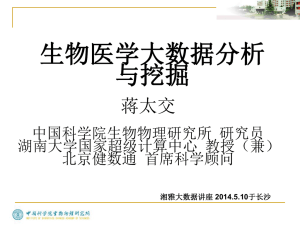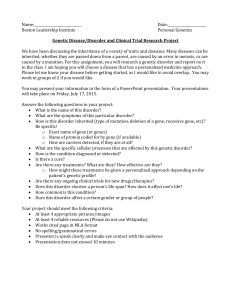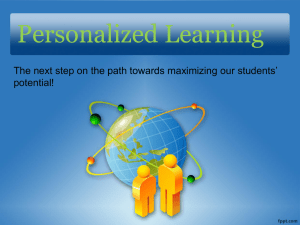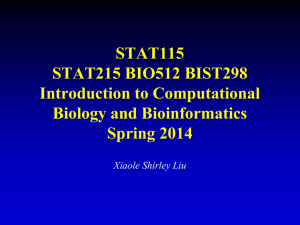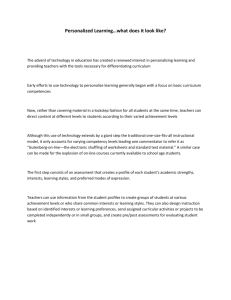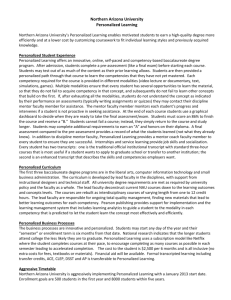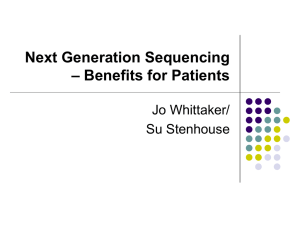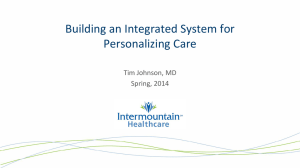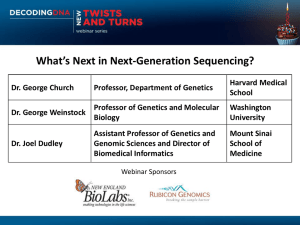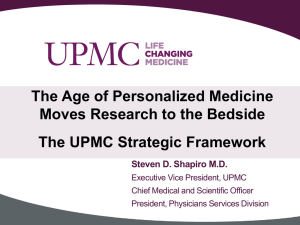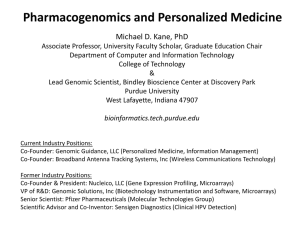Pharmacogenomics and personalized medicines
advertisement
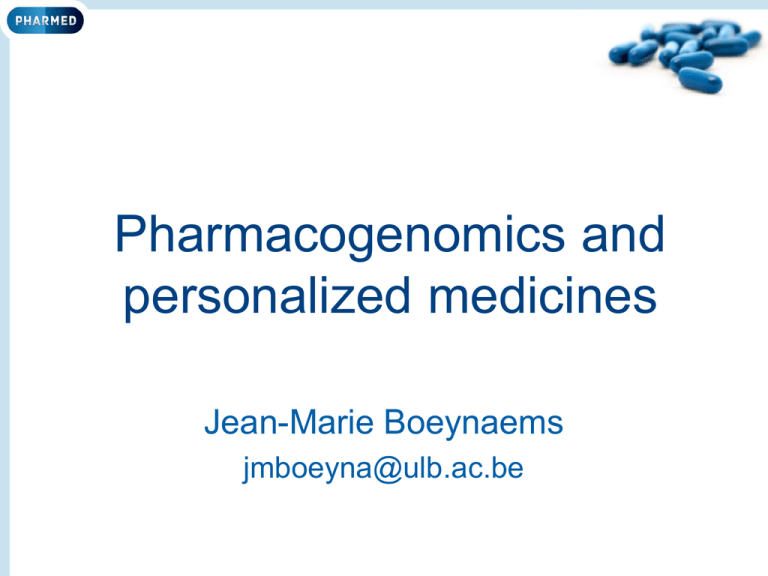
Pharmacogenomics and personalized medicines Jean-Marie Boeynaems jmboeyna@ulb.ac.be OUTLINE • • • • • • • • • • Definitions : SNP, omics Personalized choice of the medicinal product Personalized dosage of the medicinal product Problems and first achievements Individualized treatment of cancer Genome-wide association studies Technological evolution of sequencing : « The 1,000 $ genome challenge » Generalization of genome sequencing : ethical, legal and practical issues A representative sample of the slides that will be presented and discussed during the course is displayed hereafter. Different types of SNP • Outside genes : no impact • In the genes coding sequence : • change of base but not of amino acid (cf redundancy of genetic code : GCA et GCC both code for alanine) • change of amino acid : more or less impressive modification of function (loss or gain) • In the promoter region : or transcription of the gene and protein expression • In the mRNA 3’-untranslated region : (or ) sensitivity to miRNA (that inhibit translation and destabilize mRNA). Ome, Omics • Genomics: all the genes • pharmacogenomics : choice of personalized medicine • nutrigenomics : choice of best diet • toxicogenomics : prediction of toxicity • Epigenomics: all epigenetic changes in genome • Transcriptomics: all the mRNAs microarrays • Proteomics : all the proteins • Interactomics : all interactions between all proteins • Metabolomics (or metabonomics) : all metabolites • … « Personalized medicines » based on pharmacogenomics • Identification of genes conferring to individuals who carry them a better sensitivity to the therapeutic action of a medicine or a better tolerance (drug metabolizing enzymes, disease susceptibility factors) • Genotyping before inclusion in a clinical trial statistical power and cost • Simultaneous marketing of a medicinal product and availability of a genetic test to identify patients to treat • Restriction of the market but higher price since efficacy is optimized (or adverse effects decreased) . From personalized medicine to precision medicine • Some are skeptical that medicine will really be personalized, while others say that physicians have always adapted treatment to their individual patients. • Precision medicine implies that diseases are defined by underlying molecular mechanisms rather than traditional signs and symptoms. Lancet 378 : 1678, 2011 Toward precision medicine US National Research Council, nov 2011 Cancer Pharmacogenomics and Tumor and Germline Genomes Wang L et al. N Engl J Med 2011;364:1144-1153. Anticancer drugs approved by the Food and Drug Administration with labeling regarding pharmacogenomic biomarkers Wang L et al. N Engl J Med 2011;364:1144-1153. Lebrikizumab treatment in asthma : efficacy related to serum periostin Lebrikizumab is a monoclonal antibody that neutralizes IL-13. IL-13 induces bronchial epithelial cells to secrete periostin. Patients with high serum periostin respond better. Corren et al NEJM 2011 DNA cleaved in fragments Fragments fixed on beads (excess) PCR amplification in emulsion (1 bead/droplet) Transfer to multi-well (pL) slide (1 bead/well) Addition of smaller beads covered with enzymes involved in sequencing Elongation of fragments Sequential injection of nucleotides If the nucleotide is incorporated, generation of light detected by a camera Cost of genome sequencing • • • • • • Genome of C Venter : 100x106 $ Genome of J Watson : < 1.5x106 $ X Prize Foundation challenge : 10,000 $ Race for $ 1,000 genome : 1,000 $ Complete Genomics in 2009 : 4,400 $ Cost of the detection of a single mutation by Belgian genetics laboratories : 300 Report freely accessible on www.deloitte.com Take home messages • The business model of biopharma is changing and can now include personalized medicines. • The major difficulty is to identify SNPs with a strong impact on treatment choice/dosage. • Personalized medicines are making progress especially in cancer treatment, but also in asthma. • A key element is the astounding evolution of technology with a dramatic decrease in the cost of sequencing.
